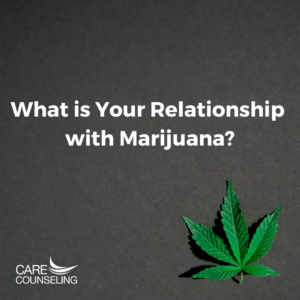What is Your Relationship with Marijuana?
 If you are struggling with your relationship with marijuana, now may be a good time to re-evaluate your options and make a lifestyle change.
If you are struggling with your relationship with marijuana, now may be a good time to re-evaluate your options and make a lifestyle change.
Celebrities who smoke weed give us a glimpse into their relationships with the substance and how this has changed over time. Public figures such as Snoop Dogg join the list of celebrities with a long-standing history of marijuana use who have recently decided to quit. Are you able to recognize when a relationship becomes unhealthy?
Ending a long-standing relationship with substances is often a significant identity shift since substance use serves many purposes in one’s life. It can be a social outlet, with recreational use in social settings with friends. Some believe that marijuana use enhances aspects of self, including desirability and creativity. It may serve as a substitute to fill voids in life such as general dissatisfaction with life, an escape from distressing thoughts and feelings, and a way to cope with stressors. Marijuana has been used to help manage chronic pain, provide relief for patients with medical diagnoses such as cancer, and provide health benefits including improved sleep and appetite. There is evidence to support that cannabis is both good and bad for your health.
Side effects of frequent, heavy use may include disorientation, increased anxiety, and paranoia. Temporary psychosis and struggles with mental health are also possibilities. Marijuana use has been linked to depression, social anxiety, and schizophrenia. Some people go on to develop an unhealthy relationship that begins to impair important aspects of daily living.
Did you know that approximately 3 in 10 people who use, go on to develop a marijuana use disorder? The risk is greater for those who begin using marijuana at an early age and those with frequent use to develop an addiction.
According to the American Psychiatric Association’s Diagnostic and Statistical Manual of Mental Health Disorders (DSM), the following are listed as signs of a marijuana use disorder:
- Using marijuana in larger amounts or over a longer period than intended
- Trying to quit using marijuana but not having success in efforts
- Spending a lot of time using or recovering from use
- Cravings to use marijuana
- Using marijuana despite it causing problems at home, school/ work, or relationships
- Giving up important activities in favor of using marijuana
- Use of marijuana in high-risk situations such as on the job or while driving
- Developing tolerance—needing to use more to get the same “high”
- Experiencing withdrawal symptoms when stopping use
Some clients who have expressed concern about their relationship with marijuana use have implemented the use of tolerance “t-breaks” to help reduce tolerance levels after a temporary period of abstinence. One of the concerns is withdrawal without medical monitoring as if one decided to stop taking a prescribed medication on their own. There is the risk of stronger cravings and the potential to increase use. In the case of medication, clients will gradually taper off medication and this may be a safer alternative for marijuana use.
It is important to be transparent with your healthcare provider about substance use and reach out for help at early signs of concern. Your provider can assist with connecting to resources to further screen and assess for a substance use disorder, which may include a referral to a Licensed Drug and Alcohol Counselor (LADC). Your therapist can also help explore your relationship with marijuana and discuss the symptoms you are experiencing. Talking to a mental health therapist is a great support to process concerns and develop alternative skills and strategies to aid in coping. They can also assist in connecting to additional referrals if needed.
Resources:
Substance Abuse and Mental Health Services Administration
https://www.samhsa.gov/find-help/national-helpline
1-800-662-HELP (4357)
Recovery.org is provided by American Addiction Centers
888-499-0024
https://minnesotarecovery.org/resource/marijuana-anonymous/
Written By: Charlotte Johnson, MA, LPCC



























